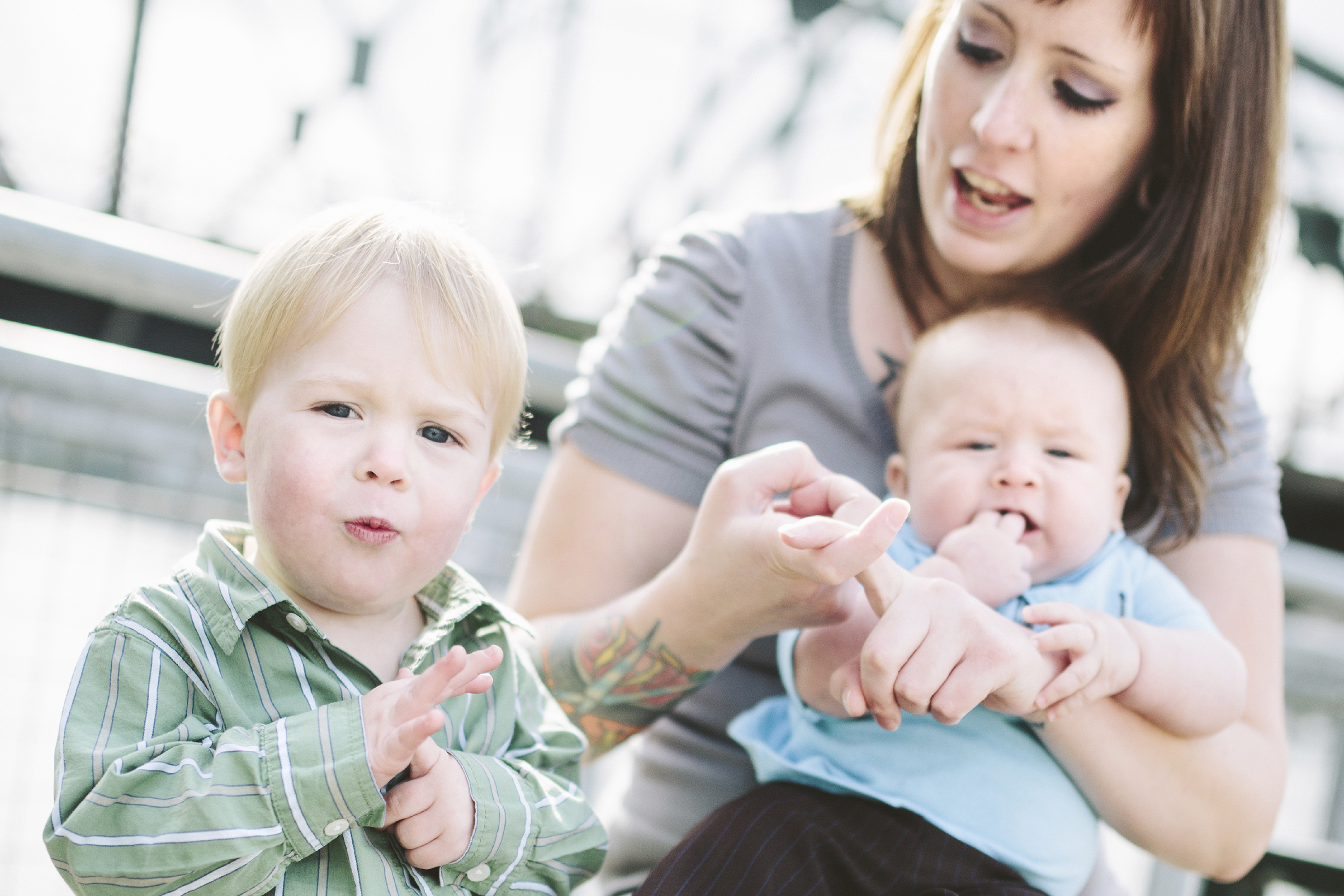About one in 1,000 children born in the United States has a detectable level of hearing loss. A major challenge for deaf children is that 90% of them are born to hearing parents who struggle to help their child develop linguistically.
University of Connecticut Board of Trustees Distinguished Professor of Linguistics Diane Lillo-Martin is the principal investigator on a nearly $3 million grant from the National Institute on Deafness and Other Communication Disorders to track the acquisition of signed and spoken language by young deaf children whose parents are hearing.
This topic is of critical importance for the well-being of children who are born deaf. Deaf children tend to start off academically and cognitively behind their peers due to a lack of early exposure to a full, natural language. Studies have shown that deaf children born to deaf parents who sign to them from birth have a much stronger foundation for later development and don’t experience the same kind of developmental lag.
Lillo-Martin’s project will study the progress of deaf children who are learning both American Sign Language (ASL) and spoken English while their parents are learning ASL alongside their child. This is a unique approach to studying language acquisition and cognitive development for deaf children. The project will recruit hearing families who have deaf children enrolled in early childhood school programs for the deaf.
Lillo-Martin and her team will examine children’s and parents’ development of ASL fluency. The study will also assess the children’s development in spoken English and other non-linguistic areas of cognitive and social-emotional development.
The researchers will then create a longitudinal study where an ASL specialist visits families to provide additional instruction. The data they collect will measure development in children and parents and the relationship between parental and child ASL learning. The researchers will also measure child language and non-linguistic developments.
The information obtained through this study will determine if extensive early interventions for parents and children learning ASL can bridge the developmental gaps between deaf children born to hearing parents.
“I’m very excited to be working on this project with my collaborators, Elaine Gale of Hunter College and Deborah Chen Pichler of Gallaudet University,” says Lillo-Martin. “We expect that the results of this research will offer parents more information on which to base their decisions about language use with their deaf children. The project will also help us to understand much better the connections between linguistic input and how children acquire more than one language.”
In addition to being a UConn professor, Lillo-Martin is a senior scientist at Haskins Laboratories and an affiliated faculty member at the CT Institute for Brain and Cognitive Sciences. Lillo-Martin holds a Ph.D. from the University of California, San Diego. Her research focuses on better understanding the human language faculty by studying the structure and acquisition of American Sign Language, and by looking at the process of language acquisition across different languages. She is the primary investigator for the Sign Linguistics and Language Acquisition Lab at UConn.
This project is NIH Grant No.: 1R01DC016901-01A1



